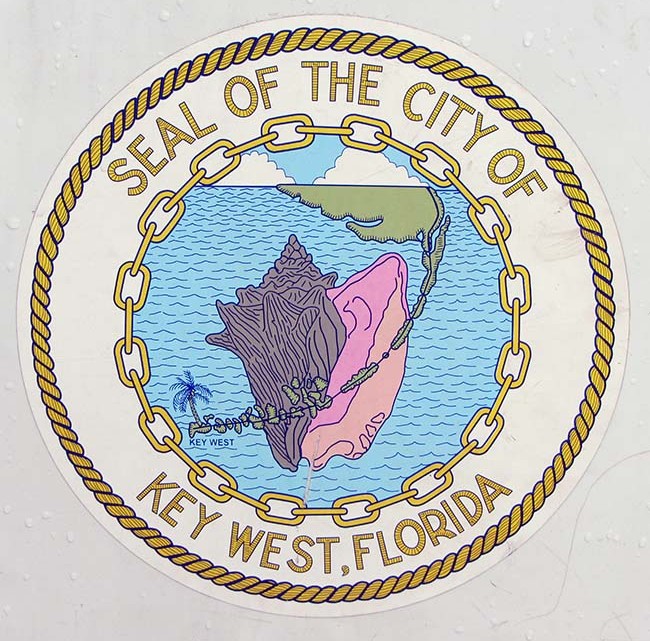Key West looking at mandatory recycling for local businesses
BY PRU SOWERS
KONK LIFE STAFF WRITER
Hoping to boost the lagging city recycling rate, commissioners are considering making recycling mandatory for local businesses.
The move could increase costs for smaller companies and force service industry businesses to retrain their staff to properly separate recyclable material and store it overnight or longer, depending on when the material could be hauled away. But requiring restaurants, bars and hotels to recycle could also jumpstart the city’s efforts to hit a statewide goal of 75 percent recycling by 2020
“Ten years ago, our goal was to get to 25 percent, then 40 percent. Then the state legislature said we should be at 75 percent,” said city Commissioner Sam Kaufman. “I think we have to be realistic. Are we going to get to 40 percent? Are we going to get to 75 percent? Maybe not. But maybe we can get to 25 percent.”
Key West tracks two types of local recycling: a “diversion rate” that includes construction debris, metal, yard waste and the traditional curbside recycling material; and “true recycling,” which is residential and commercial curbside pickup only. In 2017, the true recycling rate was 11.5 percent, although the city was on track to hit 15 percent before Hurricane Irma hit, virtually halting all recycling in September. The diversion rate in 2017 was 19.5 percent, according to Dee Dee Greene, the city’s solid waste coordinator.
The 75 percent state-mandated recycling goal is composed of all recycling collection, including diversion and “true” recycling plus the energy credits Monroe County receives for disposing of its trash at a garbage waste energy facility that produces electricity from burning the trash. In 2016, the latest year available, Monroe County’s total recycling rate stood at 57 percent.
“We have a big recycling rate for our size county,” Green said.
But on a city stand-alone basis, several commissioners said Key West needs to boost its recycling efforts. They last took aim at residential recycling in 2013, when the city reduced its trash collection schedule from twice a week to once. The move caused trash bins to fill more quickly, encouraging residents to sort out the recyclable material and put it in a separate container. At the same time, the city replaced its 18-gallon blue recycle bins with a 65-gallon model. Those two actions resulted in a jump in residential recycling rates from seven percent to approximately 22 percent in the following month.
While city utilities officials are working with local businesses to encourage them to begin or increase recycling, it can be a burden to store the material until it can be hauled away. And changing long-established trash procedures can be troublesome.
“They [businesses] think it’s too much trouble to train employee to recycle. You really need a manager that’s behind it,” Green said.
Paying a waste collection company to remove recyclables would add another cost to a business’ bottom line. But Green pointed out the huge difference in hauling costs that can actually add up to a savings if a bar or restaurant separates out the recyclables. The monthly cost for Waste Management, Inc., the city’s designated waste hauler, to pick up a 96-gallon container of trash, assuming a once a week pick-up, is $79.64. That same 96-gallon container filled with recyclables costs $24 to haul away.
“If you’re a business, it’s 75 percent cheaper to recycle than to throw garbage away,” Green said.
And that’s not the only savings. Waste Management charges Key West $72.72 per ton to haul garbage up to the mainland for burning. That same ton of recyclables cost nothing, $0, to drive up to the mainland.
“It saves taxpayers money,” Green said.
Green and the city Utilities Department are currently exploring ways to encourage more commercial recycling, including gaging interest for a Sunday recyclables pick-up by Waste Management. Currently, there is a Sunday trash pick-up but not a separate one for recycling that would allow businesses to quickly have the Saturday night piles of collected recyclables removed.
Other cities that have mandatory commercial recycling have built exemptions for smaller businesses into their ordinances, allowing small companies to opt out or limit the types of material they recycle. In addition, Green said, smaller businesses next door to each other can share a recycling dumpster, cutting their costs.
In Key West, of the 1,231 commercial trash accounts serviced by Waste Management, 574, or 47 percent, also have a recycling account. And some local businesses use other haulers to remove recyclable boxes and other material. That tonnage has not been tracked so far but Green said she estimated those numbers could boost Key West’s recycling rate by about three percent.
In the meantime, city commissioners asked city Utilities Director John Paul Castro to report back on the pros and cons of forcing all Key West businesses to recycle.
“It is very difficult,” Castro told commissioners about the downside of mandatory commercial recycling. “Especially with our bars and some of our areas downtown. People just don’t have storage for it.”
“It’s very complicated,” said Mayor Craig Cates. “It’s not something that we as a dais can sit here and figure out all that out. That’s impossible.”
[livemarket market_name="KONK Life LiveMarket" limit=3 category=“” show_signup=0 show_more=0]






It is a hypocrisy for the Mayor and City Commissioners to wave the flag about a green City Hall when they have been unable to make the simple and right decision of mandatory recycling for Businesses. Mayor it\’s not a difficult decision just do the right thing the businesses will figure it out. Until we enact such a measure the topic of recycling in Key West is a farce.